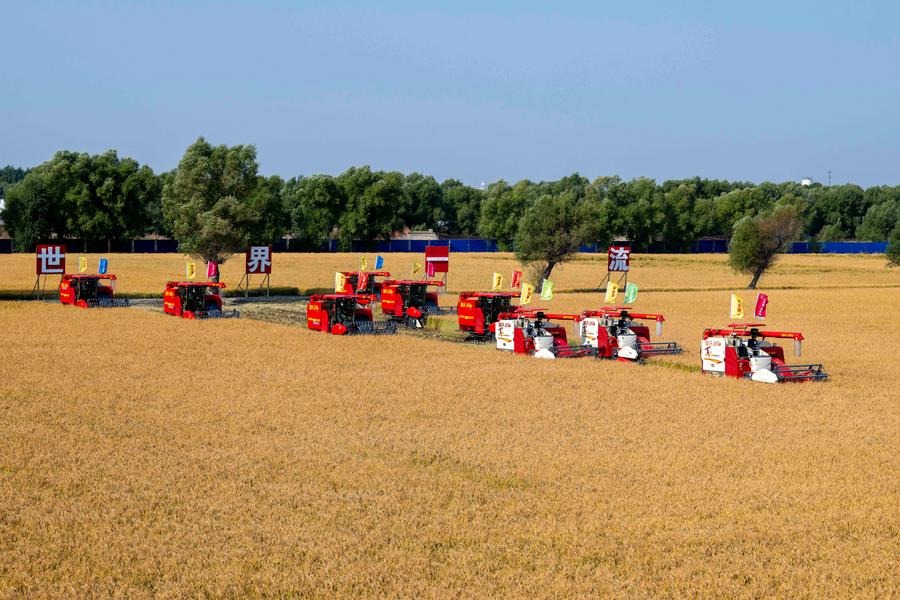Ongoing battle against drug-related crimes shows significant progress


China has seen a steady decline in drug-related crimes over the past decade, the result of sustained and intensive crackdowns by judicial authorities, according to an official from the country's top court.
From January to May, courts nationwide concluded 9,343 first-instance drug-related criminal cases, a year-on-year decrease of 29.3 percent, said Li Ruiyi, chief judge of the Supreme People's Court's Fifth Criminal Division, at a news conference on Monday.
"The downward trend has underscored our relentless efforts to crack down on drug offenses with severity and reaffirmed that our high-pressure approach to combating these crimes is resolute and unceasing," Li said.
Courts have focused on tackling source crimes such as smuggling, manufacturing and large-scale drug trafficking. Harsher punishments are imposed on those who use weapons to conceal their crimes, violently resist investigation or act as ringleaders, repeat offenders or financial backers of drug groups, Li said.
In the first five months of this year, more than 14,000 people were convicted of drug-related crimes, with 2,821, or nearly 20 percent, receiving prison sentences of more than five years — considered strong punishment under China's Criminal Law.
Judges have also increased efforts to impose fines in drug cases to strengthen the confiscation of assets tied to criminal activity, he said.
"Drug control is a global challenge. In Liangshan, Sichuan province, drugs and poverty are deeply intertwined, making the fight against drug crimes there historically difficult," said Qin Hai, executive vice-president of the Sichuan High People's Court.
"To address the problem, we launched a special operation to crack down on organized drug trafficking and transportation in Liangshan, encouraging senior judges to publicly hear cases there to boost public legal awareness," Qin said.
He added that courts have severely punished drug organizers and principal traffickers in the area to curb further offenses. Since 2017, courts in Liangshan have sentenced 2,741 people to more than five years in prison for drug-related crimes, and the number of cases involving the region has dropped significantly from its peak.
Li Xiaoguang, deputy chief judge of the Supreme People's Court's Fifth Criminal Division, emphasized the need to crack down on drug offenses targeting juveniles.
"It's increasingly common for young people to abuse new types of drugs, which often resemble food and beverages such as jelly beans or milk tea. These are more likely to confuse minors and lead them astray," he said.
Li said courts have imposed severe punishments on offenders who exploit such drugs to harm minors, while also working to improve legal knowledge among youth through livestreams, short videos and cartoons.




































